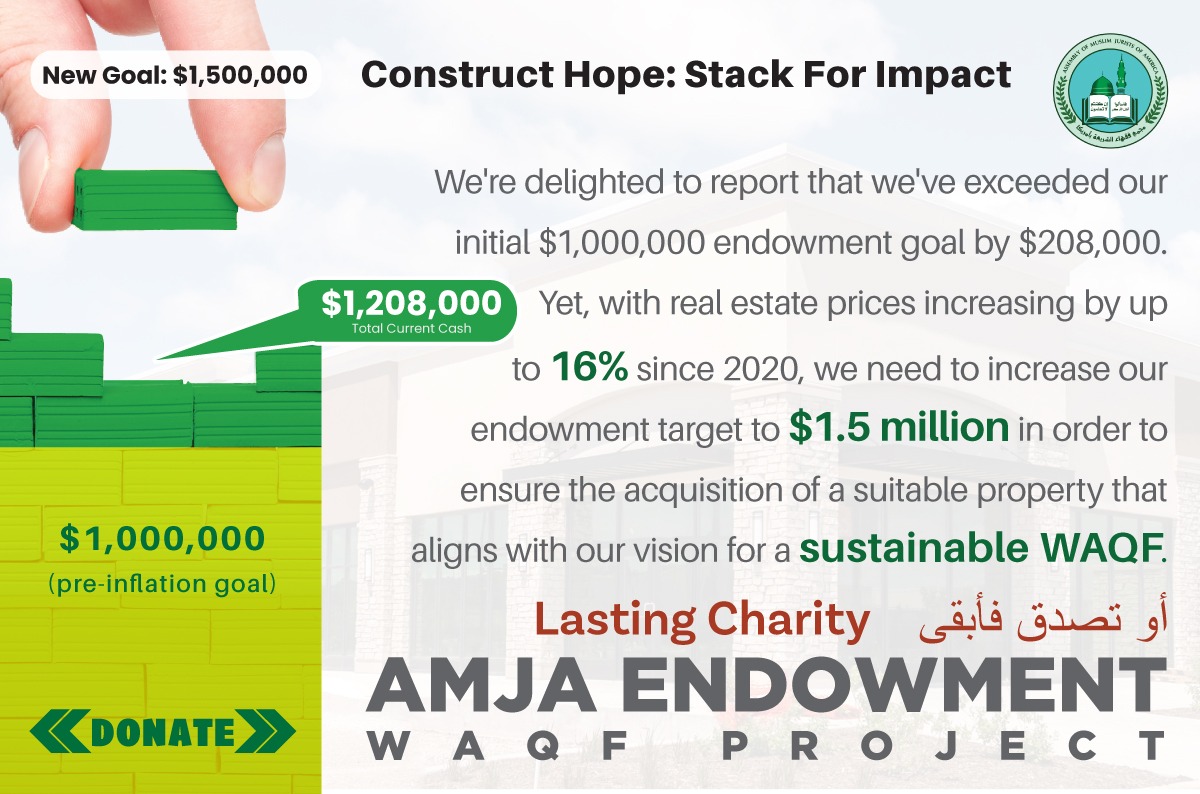بسم الله الرحمن الرحيم
In the name of Allah, the Most Merciful, the Grantor of Mercy
All praise is due to Allah and may His peace and blessings be upon the Messenger of Allah. To proceed:
The Fatwa Committee of the Assembly convened several times in the year 2025 to issue a decision regarding Islamic home financing companies in Canada. This was in response to numerous inquiries we received from Muslims there and from those managing these companies. The committee requested that several experts carefully study these contracts and discuss their findings with the companies’ management and their Sharia supervisory boards—where such boards existed.
By majority vote, and after reviewing the researchers’ report, the Fatwa Committee issued the following decision:
First:
Sharia-based assessment of companies involved in Islamic home financing in Canada:
Islamic home financing companies fall into two categories:
- Category One: Companies whose contracts, in general, avoid explicit usury. They do not deal in interest-based lending but instead use Sharia-compliant contracts such as Murabaha (cost-plus sale), diminishing partnership, and Ijarah (leasing) ending in ownership. We noticed from many of these companies’ managers a genuine commitment to avoiding prohibited transactions and a strong effort, alongside their legal advisors, to find legal mechanisms that avoid invalidating the contracts.However, these contracts often contain some invalid conditions or involve uncertainty, deception, and the like. These companies have resorted to combining various juristic opinions to create Sharia-compliant alternatives, either to comply with Canadian real estate financing laws or to safeguard the interests of investors and ensure acceptable returns for continued investment.The committee’s ruling on this category is that purchasing through them is permissible in cases of need, as long as the need is appropriately assessed.By “need,” we mean what individuals or the community require to ease hardship. If unmet, this would result in significant difficulty beyond normal expectations of religious obligations. People may differ in their evaluation of this need, but the Fatwa Committee views home ownership for Muslims residing in Canada as a general need.As for individual need, it should be evaluated based on the availability of suitable rental alternatives without undue harm. Nonetheless, we encourage these companies to continue improving their contracts to avoid the shortcomings the committee has highlighted.
- Category Two: Companies that still deal in interest-based lending, with contracts that are essentially copies of conventional interest-based financing, or that involve illegitimate loopholes. The committee’s fatwa regarding this category is that it is not permissible to purchase through them, and we advise those in charge to amend their contracts.
Second:
The Assembly emphasizes that this fatwa is directed toward individuals dealing with these companies who wish to purchase property through their financing and contracts—so long as the contracts and implementation remain as they were at the time of this statement. Any change in contracts or in how deals are executed may result in a different ruling.
As for the companies themselves, issuing a fatwa regarding many of them requires further investigation into their relationships with investors and financiers, and the terms of that financing. It also requires verifying the proper implementation of Islamic finance standards—something the Assembly has not been able to explore in detail. In this context, we affirm what was stated by the International Islamic Fiqh Academy in its 19th session (1430 AH): the importance of appointing a Sharia Supervisory Board composed of qualified scholars that operates independently from the company’s administrative body.
Third:
Application of this framework to Islamic financing companies operating in the Canadian market:
In the Name of Allah, the Most Gracious, the Most Merciful
All praise is due to Allah, and may peace and blessings be upon the Messenger of Allah. To proceed:
Due to the high cost of renting properties in Canada, the general need for home ownership, and the scarcity of financing alternatives free from prohibitions, the Resident Fatwa Committee of the Assembly deems it permissible, out of need, to finance home purchases through Murabaha in its current form as offered by the Canadian Islamic mortgage company “Manzil.” And Allah is the ultimate guide.
All praise is due to Allah, and may peace and blessings be upon the Messenger of Allah. To proceed:
The Fatwa Committee of the Assembly has received an inquiry from the administrators of the Canadian Islamic mortgage company Manzil regarding the legitimacy of Murabaha-based financing (purchase by order with cost-plus sale) that it offers to its clients. Consequently, the committee assigned one of its members to form a panel of specialists to conduct a thorough review of the contract. The research panel held multiple meetings with the management of Manzil and its Shariah advisor to obtain clarifications on the observations made regarding the Murabaha contract. Additionally, consultations were sought from independent real estate finance experts—who have no connection to Manzil—regarding the general real estate financing system in Canada and the feasibility of applying the Murabaha contract without violating Islamic principles.
The Fatwa Committee expresses its appreciation to the administrators of Manzil for their efforts in providing a Shariah-compliant alternative for home financing for Muslims in Canada. May Allah reward them.
Regarding the Murabaha contract under review, the committee has noted the following observations:
- The company does not complete the procedures of purchasing the property in its own name as it does when selling it to its client. This is done to avoid double taxation. As a result, the company’s actual or constructive possession of the property, its bearing of the associated risks (such as damage or hidden defects), appears to be more of a formality than a legal reality.
- The company requires the client to make an advance payment to the property seller before finalizing the contract to ensure the client’s seriousness in purchasing. However, at this stage, the transaction is still in the promise phase. Those scholars who allow the use of an earnest deposit (Hamish jiddiyah) stipulate that the seller should not use this money during the promise phase. Instead, it should remain held in trust, and only an amount equivalent to the actual damage suffered by the seller in case of the client’s withdrawal should be deducted. Therefore, this condition should either be explicitly clarified or removed altogether.
- The default rule is that the costs of drafting contracts between the company and the client should be shared between them unless one party agrees to bear the full cost. Moreover, these expenses should be fair and proportionate to the work done to prevent them from becoming an implicit arrangement fee or facilitation commission. However, the company imposes all contract-related costs on the client, even if the contract is not finalized due to unforeseen circumstances.
The committee advises the company to amend the contract by addressing these concerns to enhance its compliance with Islamic finance principles. Given the company’s ability and independence in setting its financing terms—unlike finance companies in the United States—it should ensure that it considers the interests of Muslim buyers just as it considers those of investors. Additionally, the company is encouraged to appoint an independent Shariah supervisory board to ensure the proper implementation of Murabaha standards, in accordance with the recommendations of the Islamic Fiqh Academy under the Organization of Islamic Cooperation (OIC) in its 19th session (1430 AH).
Due to the high cost of renting properties in Canada, the general need for home ownership, and the scarcity of financing alternatives free from prohibitions, the committee deems it permissible to finance home purchases through Murabaha in its current form. And Allah is the ultimate guide.
The Resident Fatwa Committee
28th Rajab 1446 AH
January 28, 2025 CE
In the Name of Allah, the Most Gracious, the Most Merciful
All praise is due to Allah, and may peace and blessings be upon the Messenger of Allah. To proceed:
Due to the high cost of renting properties in Canada, the general need for home ownership, and the scarcity of financing alternatives free from prohibitions, the Resident Fatwa Committee of the Assembly deems it permissible, out of need, to finance home purchases through Musharakah (partnership) financing in its current form as offered by the Canadian Islamic mortgage company Manzil. And Allah is the ultimate guide.
In the Name of Allah, the Most Gracious, the Most Merciful
All praise is due to Allah, and may peace and blessings be upon the Messenger of Allah. To proceed:
The Fatwa Committee of the Assembly has received an inquiry from the administrators of Manzil, a Canadian Islamic mortgage company, regarding the legitimacy of the Musharakah contract that it offers to its clients. The committee assigned one of its members to form a panel of specialists to conduct a thorough review of the contract.
The research panel held meetings with the management of Manzil and its Shariah advisor to obtain clarifications regarding the observations made about the Musharakah contract.
The Fatwa Committee expresses its appreciation to Manzil’s administrators for their efforts in providing a Shariah-compliant alternative for real estate financing for Muslims in Canada. May Allah reward them.
Key Observations by the Committee:
According to what we know, Manzil relies exclusively on investor funds and does not depend on conventional banks or credit unions for financing. This independence grants it greater control over decision-making and the ability to fully implement Islamic financing principles, which is commendable.
The committee did not examine the legitimacy of Manzil’s relationship with its investors but focused solely on the Musharakah contract that it signs with homebuyers.
There is some question concerning considering the structuring the relationship between Manzil and homebuyers as co-ownership (Shirkat al-Milk), especially since the client is obligated to purchase Manzil’s share and Manzil profits from selling its share. Instead, the contract should be classified under Shirkat al-‘Aqd (contractual partnership) rules.
Allowing the client to reside in the property without a formal rental agreement while covering maintenance, insurance, and taxes is acceptable under Islamic finance principles.
Since contracts are legally binding, they must comprehensively address all possible scenarios to prevent unknown aspects or uncertainty (gharar). This includes: Clearly defining each partner’s liability in case of natural disasters or insufficient insurance coverage; Ensuring that these details are explicitly included in the contract or made publicly available on the company’s website—not only upon a client’s request.
If the property is foreclosed and sold due to client default, the proceeds must be distributed proportionally based on each partner’s ownership share. Manzil cannot claim all proceeds for itself while leaving the client with only what remains after its share is covered.
In cases of fire or natural disasters, insurance proceeds must be distributed between Manzil and the client in proportion to their respective ownership shares, regardless of whether the insurance fully or partially covers the loss. This is a positive aspect of the contract and is commendable that Manzil is doing that.
If the property experiences a significant decline in value and is sold at a loss, the losses must be shared proportionally based on each partner’s ownership share. Manzil cannot claim all proceeds for itself. The contract clause stating that the client is not liable for additional shortfalls and that Manzil cannot seize the client’s other assets to recover losses is not sufficient justification for allowing Manzil to keep all proceeds from the sale.
The committee strongly advises Manzil to address these concerns to enhance the Islamic legitimacy of the Musharakah contract. Given Manzil’s independence in structuring its financing contracts—unlike Islamic finance companies in the U.S.—it has the ability to align its terms more closely with Shariah principles while balancing the interests of both homebuyers and investors.
Furthermore, the committee recommends that Manzil establish an independent Shariah supervisory board to ensure the correct implementation of Musharakah principles, in line with the recommendations of the Islamic Fiqh Academy (under the Organization of Islamic Cooperation) in its 19th session (1430 AH).
Due to the high cost of renting properties in Canada, the general need for home ownership, and the lack of fully Shariah-compliant financing alternatives, the committee deems Musharakah financing in its current form permissible, out of need. And Allah is the ultimate guide.
The Resident Fatwa Committee
29th Rajab 1446 AH
January 29, 2025 CE
All praise is due to Allah, and may peace and blessings be upon the Messenger of Allah, his family, his companions, and those who follow him. To proceed:
The committee has reviewed the Musharakah (partnership) contract submitted by the Canadian company AYA and finds that, in its current form, the contract requires fundamental modifications for approval. These modifications include:
- Establishing clear proof of the company’s ownership of the property.
- Ensuring that the company bears maintenance costs, taxes, and insurance expenses.
- Removing any guarantee of its initial capital investment and profits.
The committee recognizes the significant challenges that AYA faces in operating within the Canadian real estate financing sector. It acknowledges the difficulty of implementing Islamic finance principles due to the company’s reliance on conventional banks or credit unions to secure liquidity, which forces compliance with interest-based financing regulations.
Therefore, the committee advises the company to seek investment capital from Muslim investors and others who view Islamic finance as a more ethical and fair alternative to conventional interest-based financing. This would allow AYA greater flexibility and authority to apply Diminishing Musharakah principles more freely and in full compliance with Islamic finance guidelines.
The committee sincerely appreciates AYA’s efforts to provide an Islamic financing alternative for the Muslim community in Canada and prays for their success, guidance, and prosperity.
The Permanent Fatwa Committee
27 Sha’ban 1446 AH
February 26, 2025 CE






